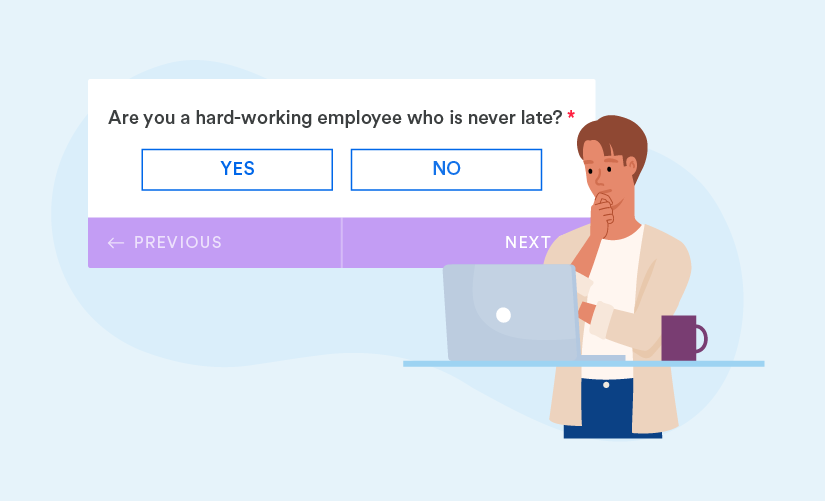In the rush of conversation, we often seek clarity but sometimes stumble into confusion without realizing it. Imagine asking someone, “Did you enjoy the movie and the dinner?” Your intentions are good—you want to know how their evening went. But in that single breath, you’ve tied together two experiences that might not align in their mind.
What if they loved the movie but found the dinner disappointing? Or maybe the opposite? They’re left to weigh their feelings against each other, possibly hiding the truth behind a polite nod or a hesitant “It was okay.” You find a muddling of answers. Rather than finding a solution, such responses create more tension and confusion.
Now, let’s say you’re telling your friend about new tools that you use at work. You ask, “Do you like the custom feedback surveys tool and the payroll management solution?” It seems straightforward, but it’s actually a similar trap. Your friend might love how the feedback tool makes gathering opinions easier but finds the payroll management solution confusing.
By asking about both in one question, you’re putting them in a spot where they have to pick one answer, even if they feel differently about each tool. This creates the same kind of tension, making it hard for them to give an honest response.
To avoid this, break it down: “What do you think about the custom feedback surveys tool?” and then, “How do you feel about the payroll management solution?” This way, they can share their true thoughts on each tool separately. It not only makes their feedback clearer but also shows that you care about understanding their experience with each tool, not just getting a general thumbs-up or thumbs-down.
Understanding the Bigger Picture: The Impact of Clear Communication
Clear communication goes beyond avoiding double-barreled questions. It’s about respecting the complexity of someone’s experience and valuing their detailed responses. Asking clear and focused questions enables others to express themselves more fully. Such clear conversation is important in casual conversation and also in professional environments.
For example, if you are responsible for implementing new tools in the workplace, like payroll management solutions, and you only ask Broad to combine them with another tool, such as a custom feedback survey tool, you may miss out on valuable insights.
There are chances that one of these tools works well while the other becomes problematic. To avoid confusion, it is better to ask your team clear questions about performance separately.
Building Trust Through Precise Questions
Asking separate, precise questions also builds trust. You need to show interest in each aspect of someone’s experience. Ask about the tasks they perform using tools. It allows you to know about their feelings about the specific tool. In this way, they are more likely to provide you with their honest opinions. Use this technique whether you gather feedback from customers, employees, or colleagues.
Asking focused questions enables you to get more actionable feedback, leading to improvement. For example, using a custom feedback survey tool, you can separately ask questions such as “How easy was the tool to gather feedback?” and “Did the tool help you gain useful insights?”. Ask about the efficiency and challenges of the tool.
Avoiding Assumptions: The Power of Listening
Clear questions also help avoid assumptions. They help you understand the tool from different perspectives. Most people start making assumptions based on one person’s experience. It is better to ask questions separately to know unique perspectives on each aspect.
This approach can also uncover unexpected insights. Maybe the custom feedback surveys tool is great for gathering quick responses, but users feel it lacks depth in the analysis it provides. Or perhaps the payroll management solution is efficient but doesn’t integrate well with other systems. Without clear, separate questions, these nuances might never come to light.
Fostering a Culture of Open Communication
Open communication fosters a collaborative environment and is one of the essential keys to success. Clear communication eliminates confusion and clears the roadmap. You need to ask clear and focused questions consistently that make your staff feel valued. This strategy allows you to get more honest opinions and develop stronger relationships.
Conclusion: The Art of Asking the Right Questions
The methods of asking questions significantly impact the quality of responses. Double-barreled questions can cause confusion and fail to grab participants’ attention. You can break down your questions separately and ask about each aspect of the tool. It creates convenience for others to give an honest answer.
Simple conversation is valued everywhere, whether you are discussing a project or having a conversation with a friend. Clear and focused questions help you deliver your idea without creating complexity. These methods help in better understanding, leading to desired results.

